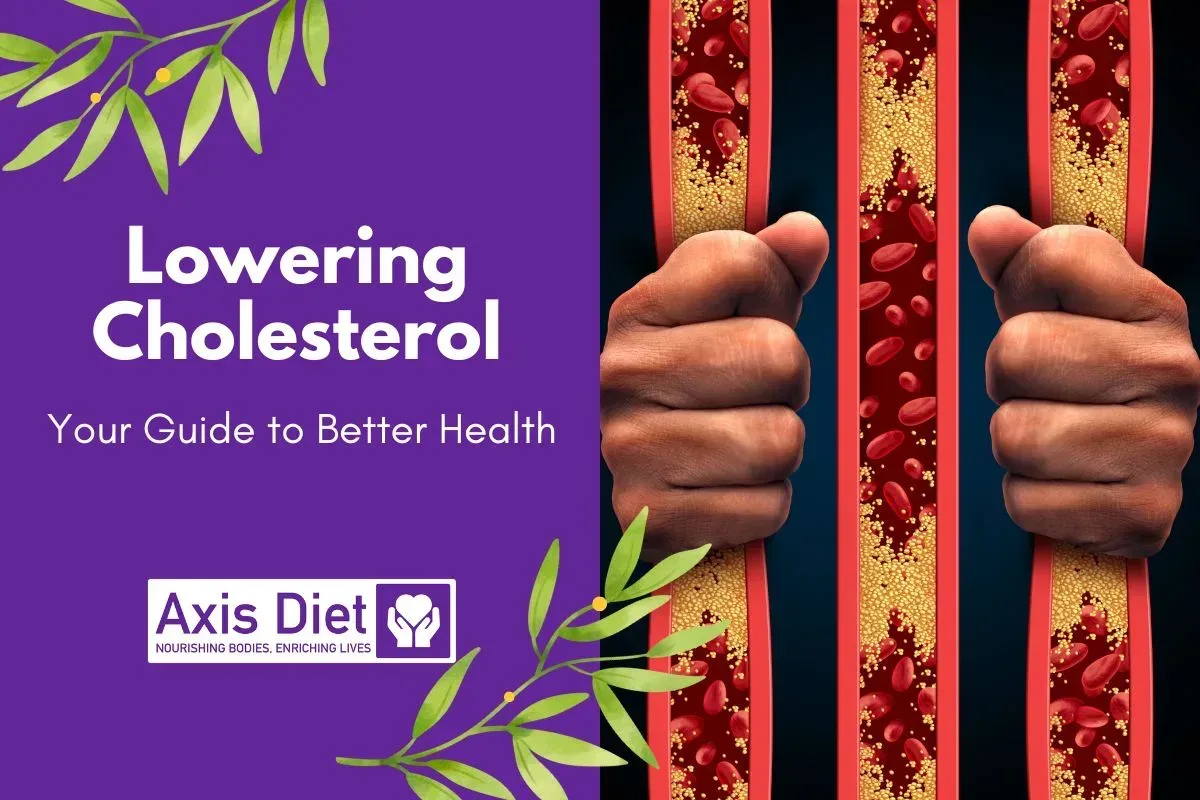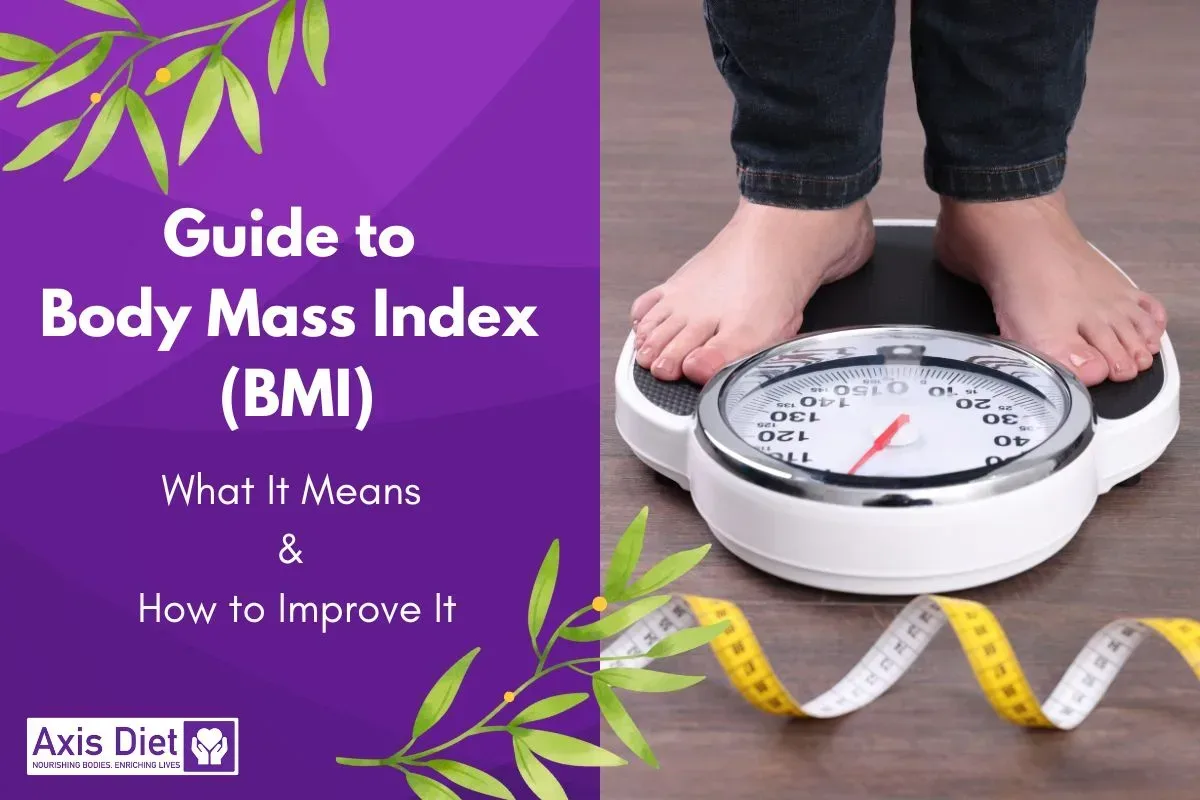Hello, health enthusiasts! Here at AxisDiet, we are your trusted companions on the journey towards achieving better health and wellness. Today, we’re diving into the crucial topic of cholesterol and offering ten simple yet effective ways to lower your cholesterol levels. Whether you are managing a condition or simply trying to optimize your wellness, this guide is for you!
What is Cholesterol?
First, let’s demystify cholesterol. Cholesterol is a waxy substance produced by your liver, necessary for making hormones, vitamin D, and substances that aid in food digestion. However, too much of it can build up in your arteries, leading to serious health problems like heart disease and stroke.
Two primary types of cholesterol travel through your bloodstream: LDL (low-density lipoprotein), often called ‘bad’ cholesterol, and HDL (high-density lipoprotein), or ‘good’ cholesterol. Ideally, you’d want low levels of LDL and higher levels of HDL for optimal heart health.
What Increases Cholesterol?
- Unhealthy diet: Consuming saturated fats (found in red meat, full-fat dairy products) and trans fats (found in fried foods, processed snacks, and baked goods) can raise your cholesterol levels. Foods high in cholesterol, like red meat and full-fat dairy products, can also increase your cholesterol.
- Obesity: Having a body mass index (BMI) of 30 or greater puts you at risk of high cholesterol.
- Lack of physical activity: Regular physical activity boosts your body’s HDL, or “good,” cholesterol while increasing the size of the particles that make up your LDL, or “bad,” cholesterol, which makes it less harmful.
- Smoking: Cigarette smoking damages the walls of your blood vessels, making them more prone to accumulate fatty deposits. Smoking might also lower your level of HDL, or “good,” cholesterol.
- Age and Gender: As we age, cholesterol levels rise. Before age menopause, women have lower total cholesterol levels than men of the same age. After the age of menopause, women’s LDL levels tend to rise.
- Genetics: Your genes can influence how much cholesterol your body produces. High cholesterol can be inherited (familial hypercholesterolemia), but it’s often the result of unhealthy lifestyle choices.
What Reduces Cholesterol?
- Healthy diet: Eating heart-healthy foods can lower cholesterol levels. This includes increasing intake of omega-3 fatty acids (found in fish like salmon, mackerel, and albacore tuna), increasing soluble fiber (found in oats, fruits, vegetables, and legumes), and adding whey protein (found in dairy products) to your diet.
- Regular exercise: Regular physical activity can help raise high-density lipoprotein (HDL) cholesterol, the “good” cholesterol while reducing unhealthy triglycerides. This one-two punch keeps your blood flowing smoothly by lowering the buildup of cholesterol in your arteries.
- Maintain a healthy weight: Losing excess pounds contributes positively to reducing cholesterol levels. Even small weight loss can help lower cholesterol.
- Limit alcohol: Moderate use of alcohol has been linked with higher levels of HDL cholesterol — but the benefits aren’t strong enough to recommend alcohol for anyone who doesn’t already drink. If you choose to drink, do so in moderation. For healthy adults, that means up to one drink a day for women of all ages and men older than age 65, and up to two drinks a day for men age 65 and younger.
- Quit smoking: Quitting smoking improves your HDL cholesterol levels. The benefits occur quickly, within 20 minutes of quitting, your blood pressure and heart rate recover from the cigarette-induced spike.
- Medication: In some cases, lifestyle changes aren’t enough to lower cholesterol levels. If your doctor recommends medication to help lower your cholesterol, take it as prescribed while continuing your lifestyle changes. Medication can help control your cholesterol.
Before making any significant dietary changes, it’s essential to consult a healthcare professional or a nutritionist. This will ensure that the diet you’re choosing is safe and appropriate for your individual health needs.
Remember, managing cholesterol is an ongoing journey that involves more than just your diet. Regular physical activity, maintaining a healthy weight, and abstaining from smoking also play crucial roles in this endeavor.
Join us in the journey to better health. Stay tuned for more insights, and until then, stay healthy and keep striving for wellness!






[…] C’s role extends to heart health, primarily by helping to lower cholesterol levels. As an antioxidant, Vitamin C can protect LDL cholesterol from oxidative damage. When LDL […]
[…] (cooked). It’s rich in beta-glucan, a soluble fiber with prebiotic benefits that also helps lower cholesterol. Barley is a source of selenium, magnesium, and several B […]
[…] but also promotes a feeling of fullness and stabilizes blood sugar levels. Additionally, it can lower LDL cholesterol (the “bad” cholesterol) by reducing its absorption in the small […]
[…] preventing overeating and promoting weight management. The high fiber content also benefits heart health by helping lower cholesterol […]
[…] For those looking for deeper insights into dietary fats and their implications on heart health, this guide on cholesterol offers valuable […]